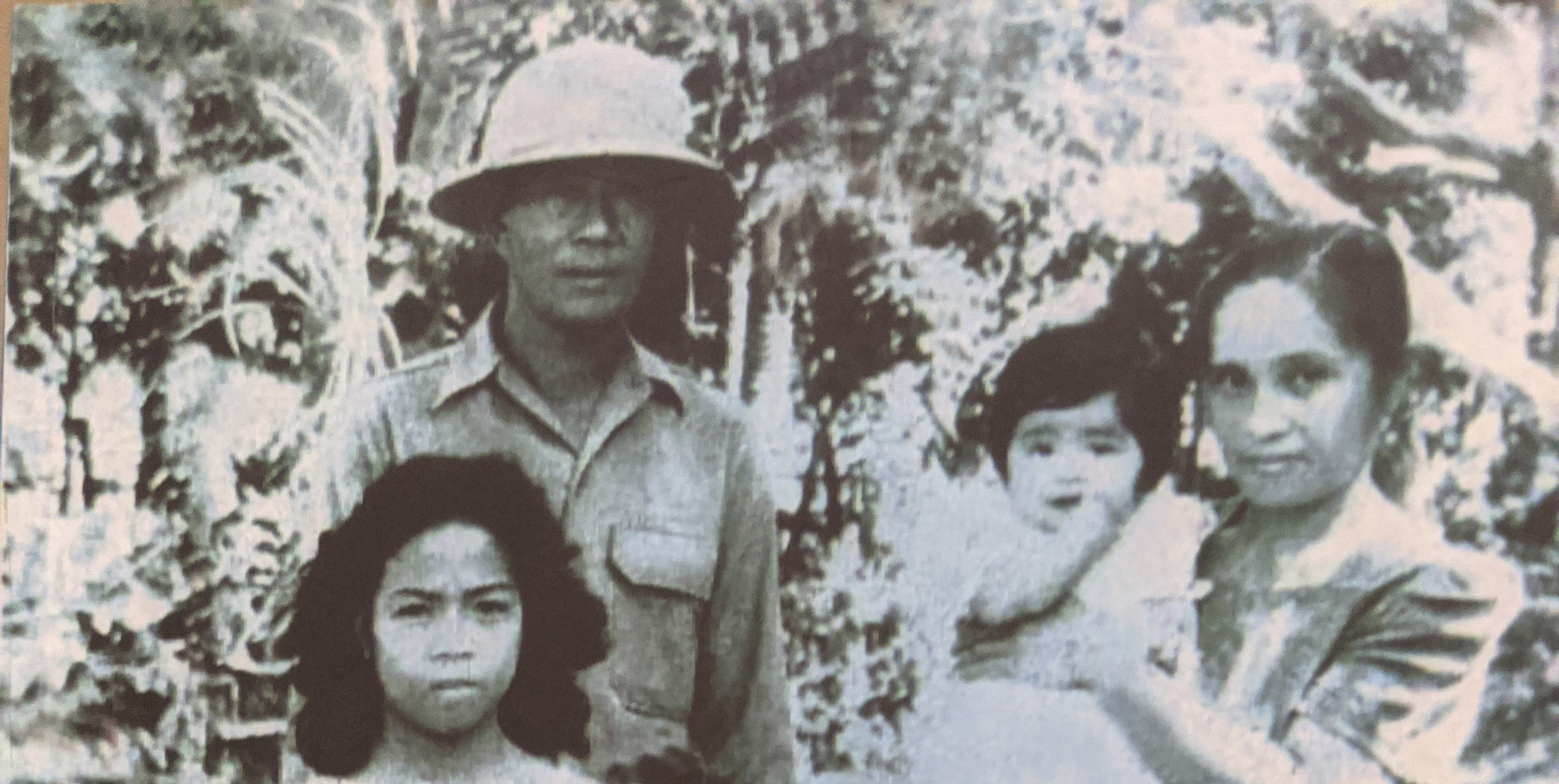BY AILA LENARD – The book,“Perdon Family: A Journey”* is Renato Perdon’s 11th publication. I have read most of his books. The previous ones were products of years of painstaking research into the history of the Philippines. The number of history books that Perdon has written attests to his love of history and research. So it is not the least bit surprising to know that Perdon has come up with a book about his genealogy. After all, if he can research into those events that only indirectly affected him, he could just as easily delve into those that have a direct bearing on his life. His background as a Filipino historian and his skills as an archivist would come in handy in his quest to retrace his family roots.
One good thing about a historian writing about his family history is that the book is not limited to a mere tracing of family roots. Perdon also writes about the saga of his ancestors against a backdrop of the major events occurring at that time. Readers who read about his family history will gain some insights into how this family handled life under the socio-political climate of the times.
Another thing I find fascinating about the book is the cultural explanation the author adds every now and then. To show an example, Perdon’s parents were married in an era when a dowry was a prerequisite for marrying. According to him, this tradition was responsible in part for distributing a family’s wealth or, in the case of Perdon’s parents, reducing the family’s land property. The way that a couple’s standing might depend on the amount of land their parents were able to grant them gives the reader a glimpse of the part that tradition played in the people’s economic and social pattern of existence in that era.
The author occasionally includes socio-political commentaries which also explain life in a particular time. Many of these are found in Perdon’s account of events that occurred in his adult life. These probably correspond to his own political awakening and increasing social consciousness. An instance of this is captured in the chapter about his work with the National Historical Institute (NHI). His work in the NHI brought him in contact with the prime movers of Philippine history in the 70s and early 80s. As an officer of the NHI, he was expected to serve the then president Marcos and his wife Imelda, and cater to their every whim and caprice.
“…Soon, my boss at the NHI received an instruction from Malacanang stating that the project must be completed in time for the Ilocos Norte celebration… The province was scheduled for a massive facelift , or what every one then termed‘ historic restoration’ of several churches and structures… as per instruction of Imelda Marcos…. The aim of Imelda, as in all the refurbishment going inthe province, was to project a historical legacy of the Marcos noble family of Ilocos Norte….”
Sometimes ,however his recollections stand so starkly on the page that we are moved to recall similar events that brought us disappointment or even anger towards the past government. One of the strongest moments in Perdon’s account was his experience in documenting the state of the Malacanang Palace after the Marcoses’ hasty retreat.
“…We arrived when the group was already opening boxes of jewelry boxes, mainly by her group (Ting Ting) of society matrons. I noticed some of them were not just interested in making a list of the pieces of jewelry, but were more interested in finding out the carats or value of the jewelry… Before we went down to board the car, Ting Ting told us to get some souvenir items for us to keep. I took a couple of gold watches, a lady and a man, with the faces of Imelda and Ferdinand Marcos, all Swiss-made. A gold ring with a big diamond ,and a couple of Cartier watches, one lady and one male watches.”
The two decades of Marcos’ notoriety have provided most of us with a collective memory that is reinforced in reading Perdon’s description of the full extent of this couple’s greed. As a government employee, Perdon was thrown into the thick of things during those eventful years. But regardless of whether we were a family man or woman or a young adult, a government worker or a student during that time, we have a similar story to tell. We remember a regime living with a lavishness that was in stark contrast with the squalid life of the majority of the population. We experienced how it was to live at a time of untold corruption and repression. And this knowledge was reinforced in reading Perdon’s story.
From the above snippets, one might suspect that Perdon has set out from the beginning to make strong political statements. Unquestionably his frank retelling of events has touched on some sensitive issues that may leave a sour aftertaste about the institutions he worked for. In exposing the malpractices within the government department he served, is Perdon aiming to arouse hostility or rock the establishment? Is he being critical of the insidious corruption that sapped the strength of the Philippine economy? Is there a hidden agenda in Perdon’s writing of this book?
I doubt it, .I think Perdon has simply written what he sees as a straight-forward account of his family’s story and that of his own life. If there are revelations that incidentally expose the flaws of government institutions or the government itself, it is because his working life was entangled in the bureaucracy of that time. He has simply related the life he led with no attempt at whitewashing or sugar coating of events that happened around him. No apologies are needed here. Those fateful events in his life shaped his consciousness and maturity.
While reading the author’s account of his own experiences within the Perdon family narrative, it also became obvious to me that Renato Perdon is on a personal journey to recover the past and wants his readers to accompany him along the way. Without realising it, he yearns for the simplicity of his childhood. The remembered childhood adventures are full of wonder and innocence. That was a time when he was only incidentally affected by the problems besetting the bigger world around him. His later struggles as an adult are now looked back on as sources of accomplishment. He finds satisfaction in tracing back to those events that impelled him to strive harder and achieve success.
He admits that the real driving force in writing this book was his family. Perdon hopes that the future generation of Perdons will acknowledge the struggles of the past generation. The success of the older generation of Perdons was achieved through hard work and persistence. The younger generation can learn from them. The book resonates with Perdon’s intention to instill a set of values into the succeeding generation by presenting the examples of those who came before.
In Perdon’s book, there is this underlying desire to counteract the development of the self-defeating personality traits currently apparent in most Filipinos – arrogance, lack of ambition, apathy etc. “When are we going to wake up to the reality that our children are growing up with the wrong moral and cultural values?” he asks ,almost with a touch of frustration. Perdon is a dreamer, but he is also a realist. He does not carry a Quixotic ambition to better the situation of the country by revolutionizing the whole nation’s attitude. He knows he has to start with his own family – the next generation of Perdons. He wants to influence his nephews, nieces and even his grandchildren to live a life of honesty, integrity and hard work as opposed to dishonesty and the clinging to money and influence to attain success. He believes that, like him and the other Perdons, every future Perdon can strive to achieve their greatest potential in the face of life’s adversities without compromising the acquired positive values.
For the most part, I’d say the book is written with all Filipinos in mind. Whether this is intentional or not on Perdon’s part is inconsequential. The Perdons are the Filipinos. Their struggle mirrors the struggle of every Filipino. The uncertainty they experienced under an inept government in those days, alas, is still happening today. The human frailty, the failures, the successes in the face of economic hardship all these reflect the plight of every Filipino even at present time. Perdon in choosing to highlight particular events in his life and those of his family has unintentionally brought unpleasant socio-political realities once more to the consciousness of his readers. For a few, it will retrieve an awareness that has been half-forgotten or even deliberately repressed.
I applaud Perdon for writing this heart-felt history of his family, which because of the breadth of its vision may very well be his legacy to all Filipinos. If this book should turn out to be Perdon’s last, it could justifiably be called the crowning achievement of a life well-lived.








Leave a Reply